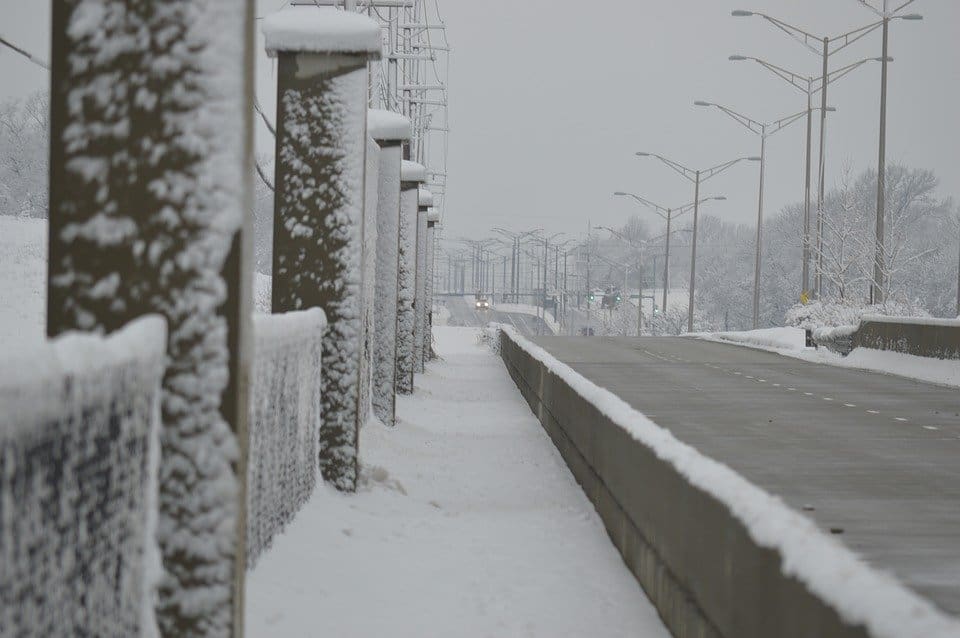
As winter storms arrive in freezing bursts across western Pennsylvania, the ice and snow will thicken on sidewalks and parking lots. These slippery surfaces inevitably lead to slips, trips, and falls on the job, all of which can lead to painful injuries that require time off from work for you to recover.
Every year, OSHA tries to warn employers about the risks, but slips, trips, and falls still account for twenty-five percent of all non-fatal work injuries resulting in days off work. In 2017, US workers suffered 20,460 ice-, snow-, or sleet-related injuries that required days away from work, according to the Bureau of Labor Statistics.
In general, the most common causes of slips, trips, and falls you may encounter at work are:
- Slick floor surfaces (melted ice, snow, etc.)
- Unsuitable floor coverings (wrinkled carpeting, loose rugs)
- Poor lighting
- Cables (electrical cords)
- Uneven or damaged floor surfaces (missing bricks in a walkway, uneven sidewalks, etc.)
- Poor housekeeping (boxes in hallways, debris on sidewalks)
Workplace maintenance matters. A cardboard box near a doorway may seem like a small issue, but tripping over that box one time could mean you’ll see significant losses in wages. To keep yourself safe through the winter season, you should beware of the most common hazards during the winter months.

Winter Slips, Trips, and Fall Prevention
Preparation is imperative for preventing slips, trips, and falls in the workplace, especially when winter weather conditions are present. To stay safe at work:
- Keep your floors dry. Wet shoes and chunks of ice and snow can cause puddles in your facility. Each entryway should have a sturdy floor mat for wiping shoes and removing excess water and ice trapped in your shoe treads. Be cautious around floor mats, however. If a mat isn’t properly installed, it could present an additional tripping hazard.
- Be careful on stairs. Even a small bit of ice or melted snow on a single step could lead to serious injuries. Visually check each stair tread before stepping. Use the handrail for balance, but test it before applying your full weight. All handrails should be sturdy and capable of supporting an adult walking up or down the stairs. If a handrail is loose, it may not be able to save you if you slip.
- Watch for cables. With the holidays here, many will decorate with strings of lights and other decorations that require long power cables. These cables should never cross walkways, but mistakes happen. Keep an eye out for cables on sidewalks.
- Check your footwear. High heels and dress shoes are poor protection against snow, ice, and slush. If possible, wear boots or non-slip shoes for better traction. If you must wear specific shoes for work, change into them after you step indoors.
- Walk like a penguin when ice may be present. Spread your feet shoulder-width apart, bend at the knees, extend your arms to your sides, then shuffle forward slowly. Doing so will help you keep your balance over both feet at all times to reduce the risk of slipping.
Winters in Pennsylvania are hazardous in and out of the workplace, but the proper preparation will ensure you remain safe. Knowing the hazards you may encounter will help you protect yourself and your fellow employees from serious injuries.
If you’ve been injured on the job in a slip, trip, or fall accident, contact us. Dugan & Associates will ensure you receive the guidance and compensation you deserve as you recover.


